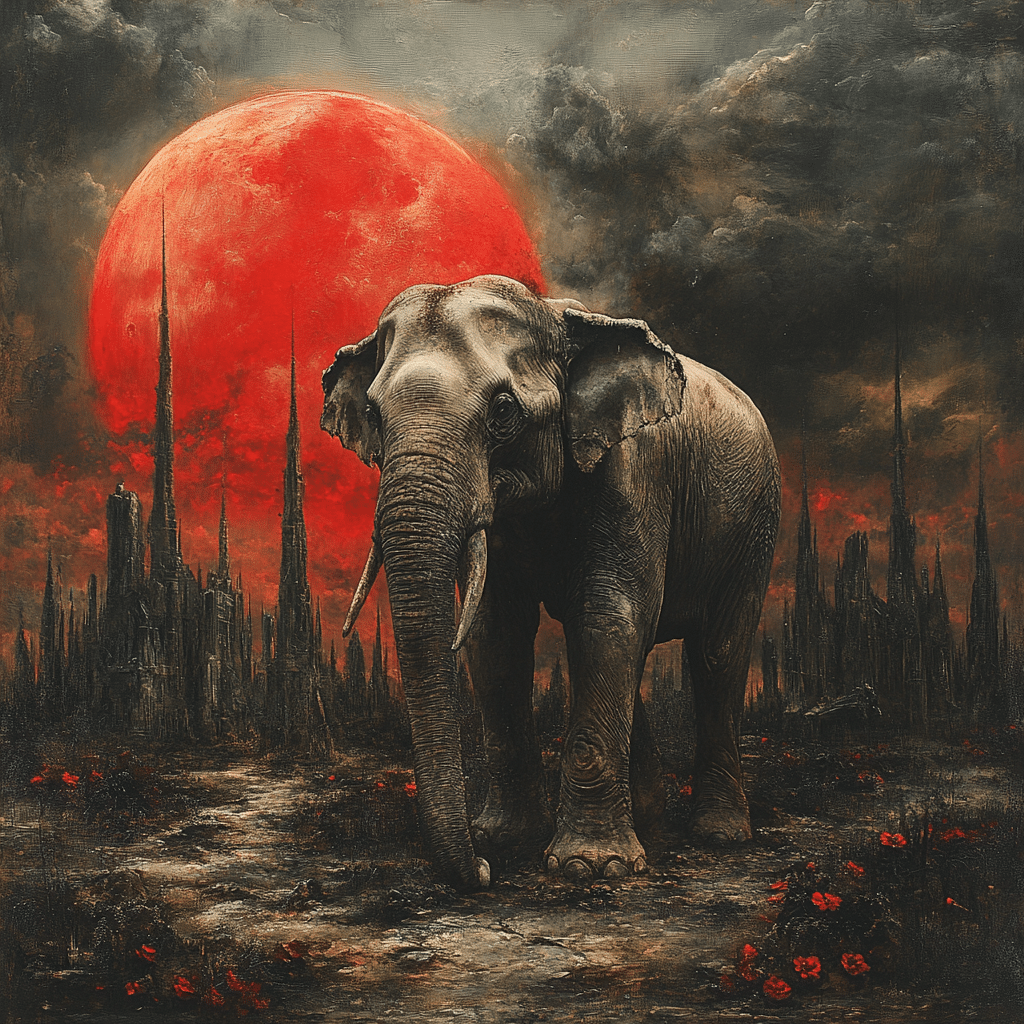The Taiping Rebellion, which lasted from 1850 to 1864, is one of the most devastating civil wars ever fought, claiming an estimated 20 to 30 million lives. This massive conflict wasn’t just about power struggles; it was a wild reflection of social, religious, and political chaos brewing in China for centuries. As we dive into the explosive world of the Taiping Rebellion, we’ll explore its causes, key players like Hong Xiuquan, and the far-reaching consequences that still resonate today. So, grab a seat, and let’s unpack this epic saga—because who said history can’t be entertaining?
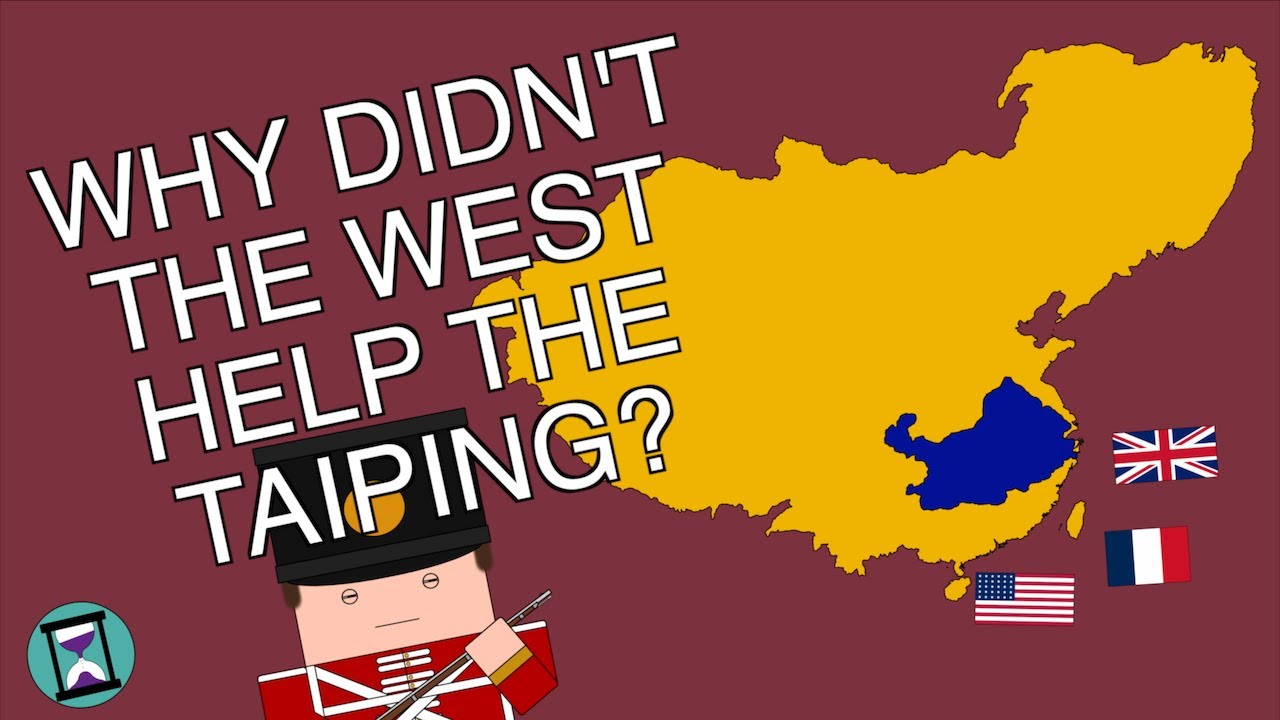
Top 7 Unforgettable Impacts of the Taiping Rebellion
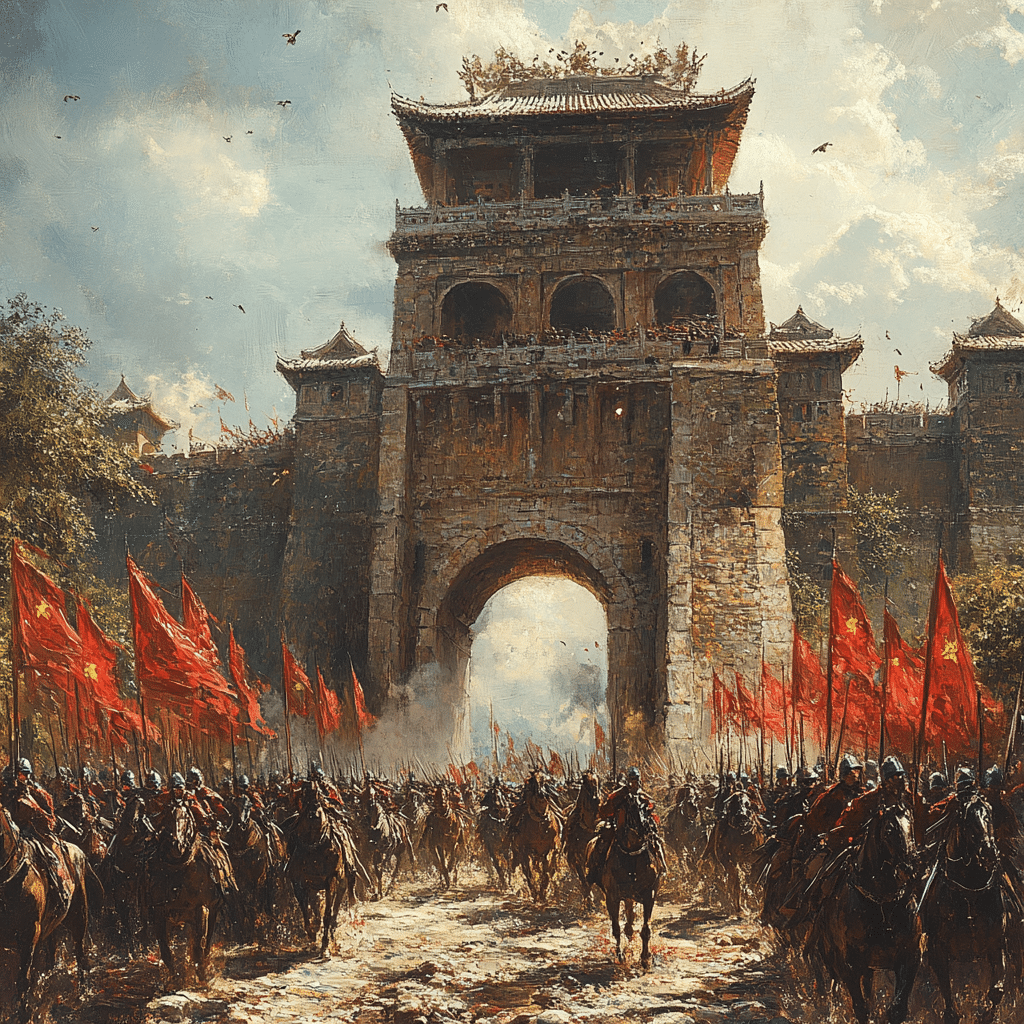
1. Disruption of Imperial Control
The Taiping Rebellion wasn’t just a scratch on the Qing Dynasty’s pride; it was more like a full-on identity crisis. Hong Xiuquan and his followers put the imperial authority to the test, highlighting just how weak and frail feudal systems can become in times of immense pressure. When the Qing court struggled against the Taiping forces, it wasn’t just about the uprising; it set the stage for a series of civil and social upheavals that led to the dynasty’s eventual downfall. Think of it as a dramatic plot twist—one that dashed any remaining hopes of stability!
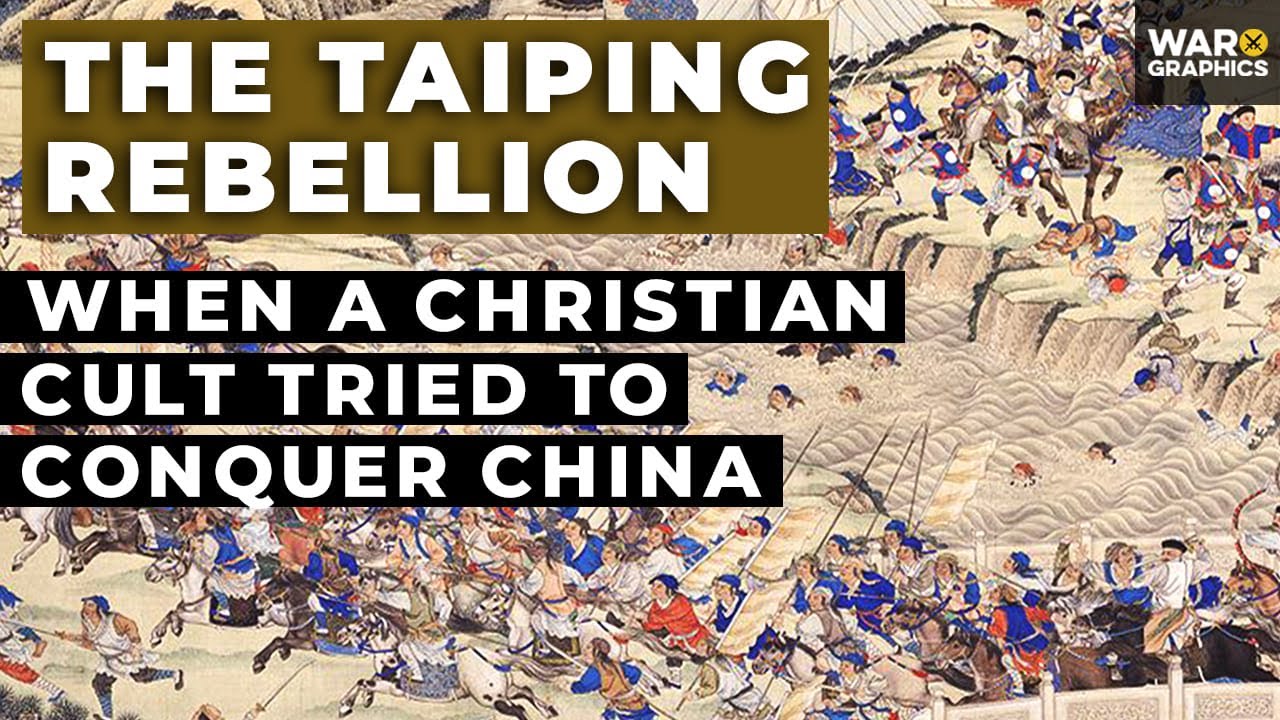
2. Religious Transformation in China
Now, let’s talk religion! The Taiping Rebellion gave rise to a quirky mix of Christianity that can only be described through the eyes of Hong Xiuquan, who believed he was the younger brother of Jesus. His movement birthed the Taiping Heavenly Kingdom where Confucianism and Buddhism found themselves unceremoniously booted out the door. This unique blend of ideologies ignited interests in Christian missionary work, particularly in urban hotspots like Hong Kong. So, while segments of the conflict fueled tension, it also paved the way for religious diversity—a rare feat indeed!
3. Economic Consequences
Brace yourself; the Taiping Rebellion hit the economy like a freight train. With agriculture, trade, and commerce disrupted, peasants were left to fend for themselves during widespread famines. Major cities like Shanghai transformed into refugee hotspots, dramatically changing the demographic fabric of the region. You could say the economic fallout turned many a bustling market into ghost towns faster than you could say “supply chain disruption.” Talk about a harsh reality check!
4. Social Upheaval and Changes in Gender Roles
Here’s where the Taiping Rebellion gets interesting: it shook up traditional gender roles like a snow globe. Women stepped right into roles usually reserved for men, fighting alongside their brothers and husbands. This shift not only brought empowerment but also kicked off discussions around gender equality—something that would later become pivotal as feminism gained traction in Chinese society. Who would have thought rebellion could lead to social reform? Sometimes, a little chaos is just what the doctor ordered!
5. Military Innovations and Tactics
The military aspect of the Taiping Rebellion was a showstopper! The Taiping forces, comprised of a diversified crowd—miners, smiths, and even former pirates—adopted both traditional and innovative military tactics. The Qing Dynasty found itself scrambling to adapt, which led to significant military reforms in the long run. It’s like watching a military version of a tech startup—survival of the fittest at its finest!
6. International Implications
Ah, international relations! The Taiping Rebellion didn’t just stir up trouble in China; it caught the attention of global powers like Britain and France. With trade interests in the balance, these foreign powers intervened to support the Qing Dynasty. This interaction resulted in a palpable shift in foreign policy, with lasting effects that still ripple through today’s geopolitics. If you thought the rebellion was an isolated incident, think again—this was a global shake-up, folks!
7. Cultural Legacy and Artistic Influence
Finally, let’s chat about legacy! The Taiping Rebellion has left its imprint on art, literature, and even film. Many contemporary works explore themes of rebellion and the quest for social justice, drawing inspiration from this intense historical period. So next time you’re binge-watching something edgy, take a moment to wonder if the magic lies in the shadows of the Taiping legacy. Remember that this rollercoaster of a rebellion continues to influence storytellers worldwide!
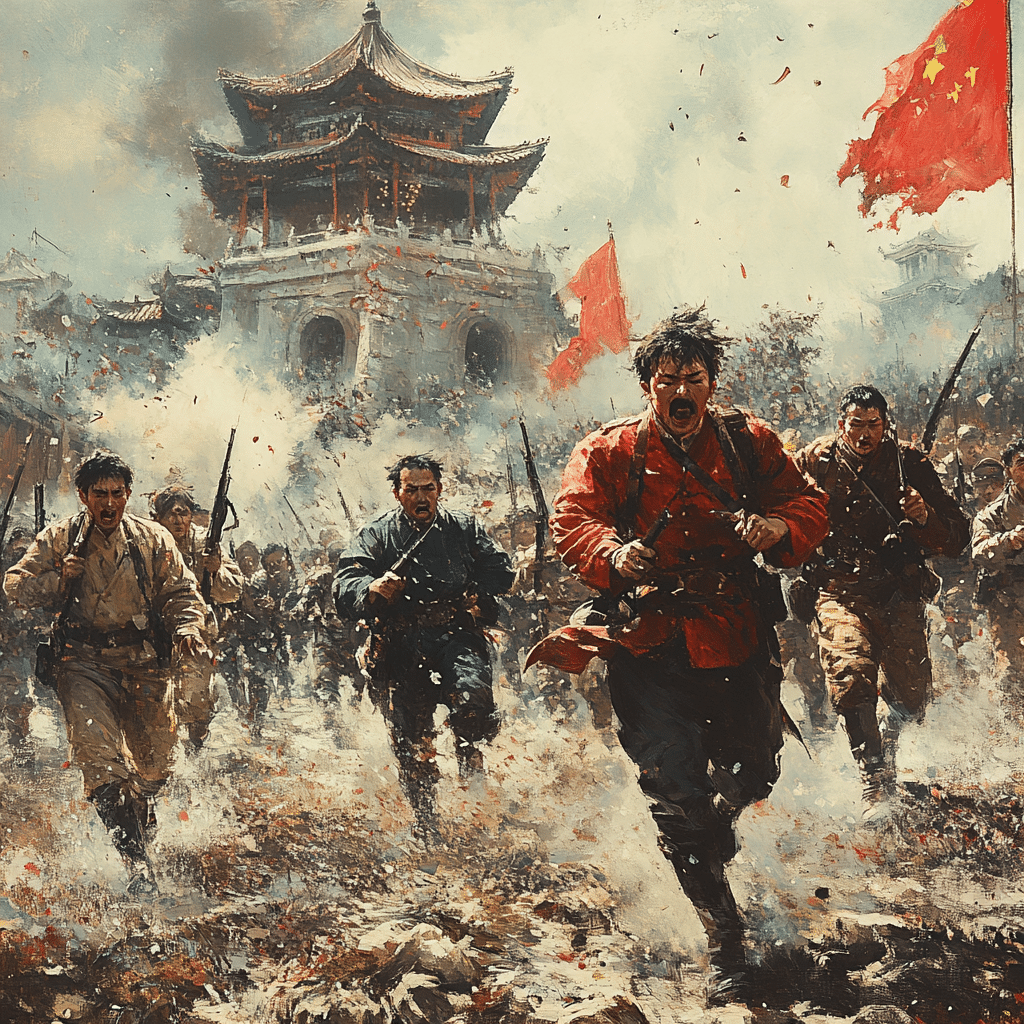
Unraveling the Historical Threads of the Taiping Rebellion
The impacts of the Taiping Rebellion resonate well beyond its immediate effects, weaving through China’s story and even into the global tapestry. Just like the Hong Kong Express, which connects cultures and economies, the lessons from this conflict remind us of the crucial role internal strife plays in shaping society. This historical saga invites us to reflect on the importance of addressing deep-rooted grievances before they escalate into something catastrophic.
As we reflect on the Taiping Rebellion, we’re not just gazing at a bygone era; we’re peering into a lens that highlights ongoing societal challenges. It emphasizes the need for understanding and dialogue in a world that feels increasingly interconnected. So, as we close the chapter on this bloody tale, let’s carry its lessons into the future—because who wouldn’t want to avoid another catastrophic civil conflict?
The Taiping Rebellion serves as both a tragic reminder and a critical lesson for societies navigating the complexities of governance, faith, and identity today. If history teaches us anything, it’s that ignoring the needs of the people can lead to chaos—and no one wants that, right? So, as we move forward, let’s continue the conversation about these critical historical threads, and remember that every story has the potential to enlighten our paths.
And hey, if you’re curious about more stories from history that resemble today’s challenges, check out fun topics like the upside-down pineapple, or learn about the as above so below meaning as it pertains to today’s society. Trust me, the connections are fascinating!

Taiping Rebellion: The Bloodiest Civil War in History
The Backstory of Chaos
When the Taiping Rebellion kicked off in 1850, China was already in a swirl of problems, ranging from poverty to foreign pressures. It was a rebellion led by Hong Xiuquan, who claimed he was the younger brother of Jesus Christ. Talk about a bold move! This dude sought to establish the Taiping Heavenly Kingdom, which promised reforms that included gender equality and communal wealth – an alluring dream just like that upside down pineapple symbol’s connotations of hospitality and community. Surprisingly, Hong’s vision attracted millions, signaling a massive societal discontent.
Interestingly enough, the sheer scale of the Taiping Rebellion is mind-boggling; estimates suggest around 30 million lives were lost. Just think, that’s more than the combined casualties of both World Wars! While the world was changing rapidly, those fighting in this brutal conflict suffered. It kind of makes you reflect on nuancing one’s priorities, reminiscent of choosing movie genres in the Pauly Shore Filmography. The confusion of allegiances during the Taiping Rebellion led to other rebellions popping up, leaving the Qing Dynasty gasping for breath.
Cultural Impact and Legacy
The impact of the Taiping Rebellion extends beyond just battlefields; it rippled through literature and culture. Many stories from the period highlight the chaos and spiritual fervor, not unlike how Yoshikage kira embodies the dark side of obsession in his own narrative. The rebellion influenced later movements, shaping modern China in ways we can still see today. Moreover, you might feel a stark contrast between the historic upheaval and personal stories shared in small break out session at community gatherings, where discussions reveal just how much individuals can strive for change.
Perhaps one of the most ironic twists is how the Taiping Rebellion’s failure led to a stronger Qing dynasty, galvanizing Chinese nationalism. It’s a bit reminiscent of how something seemingly trivial, like the popularity of a dark Brandon mug, can stir conversations and perspectives in unexpected ways. Sometimes, what looks like a setback can pave the way for greater understanding and a united front, much like how states have been known to rally their citizens after crises, even drawn into conversations about questionable acts like the MN senator burglary. In the end, the Taiping Rebellion might have faltered, but its legacy still sparks debate about both governance and the human spirit.
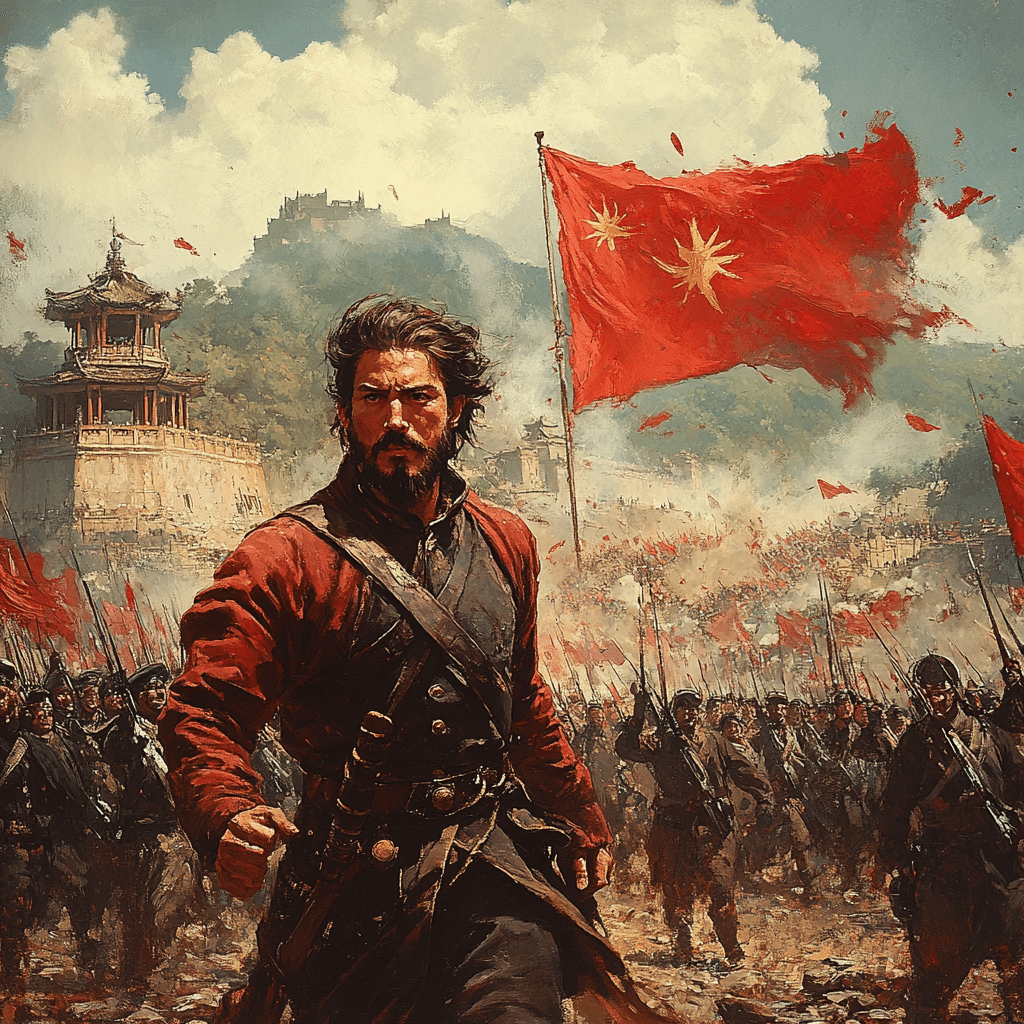
What was the Taiping Rebellion and why did it happen?
The Taiping Rebellion was a massive civil war in China from 1850 to 1864, fueled by peasant unrest due to economic hardships like floods and famines. Led by Hong Xiuquan, who claimed to be the brother of Jesus, it aimed to challenge the ruling Qing dynasty and foreign influence.
Who was Jesus Christ’s brother in China?
In the context of the Taiping Rebellion, Hong Xiuquan claimed to be the younger brother of Jesus, which helped him rally followers around a new belief system that mixed Christianity with social ideals.
What was the main motivation behind the Taiping Rebellion?
The main motivation behind the Taiping Rebellion was a mix of religious conviction and dire economic conditions; the desperate situation of the peasants made them more receptive to Hong Xiuquan’s revolutionary ideas.
Was the Taiping Rebellion the bloodiest civil war?
Yes, the Taiping Rebellion is often referred to as the bloodiest civil war in history, with estimates of up to 30 million lives lost, surpassing other conflicts in scale and devastation.
Who claimed to be the brother of Jesus?
Hong Xiuquan, the leader of the Taiping Rebellion, claimed to be the brother of Jesus, which was a pivotal part of his appeal and the ideology of the rebellion.
What does Taiping mean in English?
The term “Taiping” translates roughly to “great peace” in English, reflecting the movement’s original hope of establishing a peaceful society.
What was Jesus’s half brothers name?
In Christian texts, Jesus’s half-brother is commonly known as James, who played a significant role in the early Christian church.
Which apostle brought Christianity to China?
The apostle that is often believed to have brought Christianity to China is Thomas, although historical evidence is thin and there’s much debate about this.
Did Jesus ever visit China?
There is no solid historical evidence that Jesus ever visited China; such claims are mostly speculative and part of various legends.
How was the Taiping Uprising different from other peasant rebellions in China?
The Taiping Uprising stood out from other peasant rebellions in China primarily because of its strong religious underpinnings and the charismatic leadership of Hong Xiuquan, turning it into a large-scale revolutionary movement rather than just a local revolt.
What was the slogan of the Taiping Rebellion?
One of the well-known slogans of the Taiping Rebellion was “Destroy the Qing, restore the Ming,” reflecting its anti-Qing sentiment and desire to revive the earlier Ming dynasty, which they believed represented better governance.
What were the negative effects of the Taiping Rebellion?
The negative effects of the Taiping Rebellion were profound, leading to massive loss of life, economic ruin in regions of China, and significant political changes as the Qing dynasty struggled to maintain control.
What is the deadliest civil war in the world?
The deadliest civil war in the world is considered to be the Taiping Rebellion, due to its staggering death toll, which dwarfs that of other civil wars and conflicts throughout history.
What is the religion of the Taiping?
The Taiping faith combined aspects of Christianity with elements of socialism, creating a unique religious system known as Taiping Christianity or God Worshipping.
Why did Westerners oppose the Taiping Rebellion?
Westerners opposed the Taiping Rebellion for various reasons, one being the concern over the radical ideology that threatened their economic interests and political alliances, particularly as the Qing dynasty was more favorable towards them.
Which of the following was a cause of the Taiping Rebellion?
A major cause of the Taiping Rebellion was the severe socioeconomic conditions, including widespread famine and natural disasters, which left the peasantry destitute and ripe for revolution against the ruling Qing.
What is the history of Taiping?
Taiping refers to both a historical moment in China, highlighting the conflict against the Qing dynasty, and also points to the ideology of the God Worshipping Society that Hong Xiuquan led during this period.
What caused the Qing dynasty to fall?
The Qing dynasty fell due to a combination of factors including internal rebellions like the Taiping and Boxer Rebellions, corruption, neglect in governance, and the pressure of Western imperialism.
What were the causes and effects of the Boxer Rebellion?
The Boxer Rebellion, which occurred later, was fueled by anti-foreign sentiment and arose from frustrations with foreign interference, adding to the growing instability that plagued the Qing dynasty during its decline.






